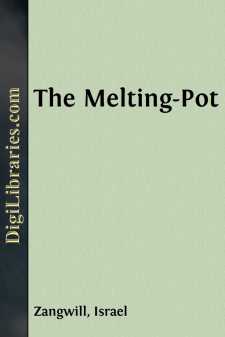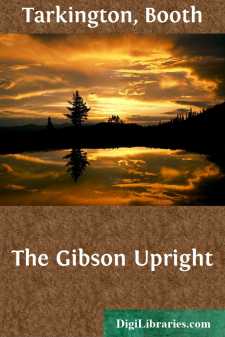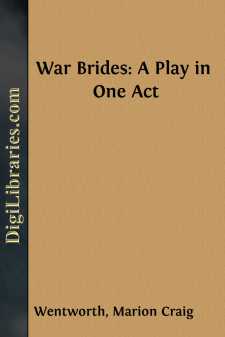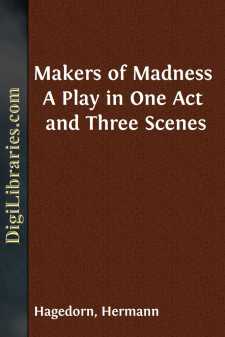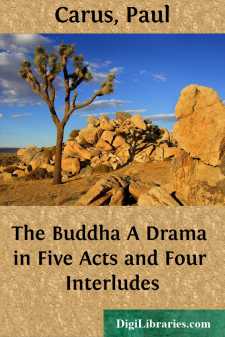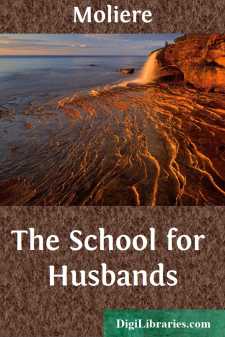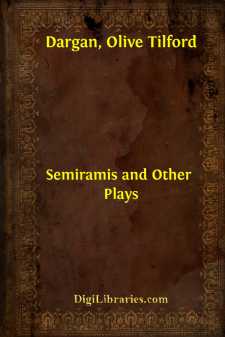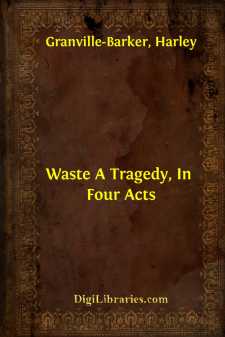Drama
General Books
Sort by:
THE STAGE AS IT IS. LADIES AND GENTLEMEN, You will not be surprised that, on this interesting occasion, I have selected as the subject of the few remarks I propose to offer you, "The Stage as it is." The stage—because to my profession I owe it that I am here, and every dictate of taste and of fidelity impels me to honor it; the stage as it is—because it is very cheap and empty honor that is...
more...
by:
Israel Zangwill
Act I The scene is laid in the living-room of the small home of the Quixanos in the Richmond or non-Jewish borough of New York, about five o'clock of a February afternoon. At centre back is a double street-door giving on a columned veranda in the Colonial style. Nailed on the right-hand door-post gleams a Mezuzah, a tiny metal case, containing a Biblical passage. On the right of the door is a...
more...
by:
Booth Tarkington
ACT I ANDREW GIBSON'S _office in his piano factory where he manufactures "The Gibson Upright." A very plain interior; pleasant to the eye, yet distinctly an office in a factory, and without luxuries; altogether utilitarian. Against the wall on our right is a roll-top desk, open, very neat, and in the centre of the writing pad a fresh rose stands in a glass of water. Near by is a long,...
more...
by:
Richard Wagner
TRISTAN AND ISOLDA. ACT I. [A pavilion erected on the deck of a ship, richly hung with tapestry, quite closed in at back at first. A narrow hatchway at one side leads below into the cabin.] SCENE I. ISOLDA on a couch, her face buried in the cushions.— BRANGÆNA holding open a curtain, looks over the side of the vessel. THE VOICE OF A YOUNG SAILOR (from above as if at the mast-head). ISOLDA...
more...
WAR BRIDES The war brides were cheered with enthusiasm and the churches were crowded when the wedding parties spoke the ceremony in concert.—PRESS CLIPPING. SCENE: A room in a peasant's cottage in a war-ridden country. A large fireplace at the right. Near it a high-backed settle. On the left a heavy oak table and benches. Woven mats on the floor. A door at left leads into a bedroom. In the...
more...
by:
Hermann Hagedorn
SCENE I A room in the Ministry of War in the capital of Iberia. Evening. The minister of war, a tall, stern, bearded man with deep-set eyes and many furrows, is sitting at a large, mahogany desk-table, Left. The chief of staff, silent, motionless and watchful, stands beside him with his hands resting on the table-top. He is thin, old and emaciated, clean-shaven, firm-lipped, and looks startlingly like...
more...
by:
Paul Carus
ACT I. [A tropical garden in Kapilavatthu, in the background mountains, at a distance the snow-capped peaks of the Himalayas. On the right near the front a marble bench surrounded with bushes. Further back the palace entrance of the Raja's residence. Above the entrance a balcony. On the left a fortified gate with a guard house; all built luxuriously in antique Indian style.] Present: Suddhodana,...
more...
by:
Moliere
ACT I. SCENE I.—SGANARELLE, ARISTE. SGAN. Pray, brother, let us talk less, and let each of us live as he likes. Though you have the advantage of me in years, and are old enough to be wise, yet I tell you that I mean to receive none of your reproofs; that my fancy is the only counsellor I shall follow, and that I am quite satisfied with my way of living. AR. But every one condemns it. SGAN. Yes, fools...
more...
ACT I. Scene: Within the tent of Menones, on the plain before Nineveh. Left, centre, entrance to tent from the plain. Curtains rear, forming partition with exits right and left of centre. The same at right, with one exit, centre. Couch rear, between exits. From a tent-pole near exit, right centre, hang helmet and a suit of chain armor. Sola parts curtains rear, left, and looks out, showing effort to...
more...
WASTE At Shapters, George Farrant's house in Hertfordshire. Ten o'clock on a Sunday evening in summer. Facing you at her piano by the window, from which she is protected by a little screen, sits Mrs. Farrant; a woman of the interesting age, clear-eyed and all her face serene, except for a little pucker of the brows which shows a puzzled mind upon some important matters. To become almost an...
more...



